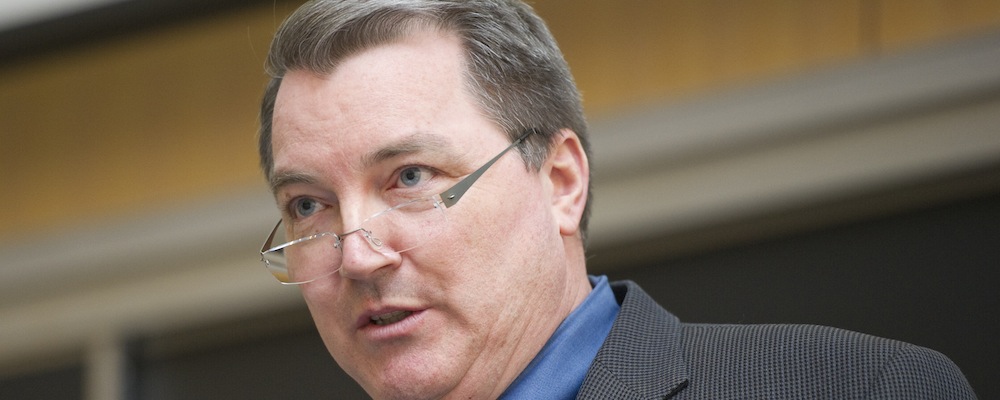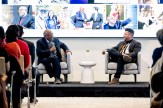3Qs: Cairo’s “new normal”

Political science professor Denis Sullivan, who has spent the past 27 years as a regular visitor and part-time resident of Cairo, returned to the city last week to experience first hand the impact of the revolts that toppled President Hosni Mubarak and much of his government from power earlier this month. We caught up with him Thursday in his Cairo apartment.
What is the purpose of your visit to Cairo this week?
First, for Northeastern, I needed to assess the situation and safety issues for potentially three Dialogue of Civilizations study programs, involving 60 students, coming to Cairo this summer.
Second, wearing the hat of a “student of Egypt,” I wanted to witness history in the making. Every day, there’s a new political development. Plus, I have a home here. I wanted to see if the horrible images on TV had changed anything, and to make sure everything was okay.
What’s it like there now? What are you seeing?
Cairo is back to its normal self, almost. There are no demonstrations or looting; there are, on occasion, some small-scale protests. For example, two days ago, people who work for a public gas company staged a protest to demand a pay raise. And a group from the Supreme Council of Antiquities, which oversees cultural heritage monuments and artifacts — like the Pyramids — are calling for the firing of their boss, a Mubarak loyalist.
There’s a curfew from midnight to 6 a.m., but people drive right by the military personnel or even ask directions of them. “The people and the army are one,” Egyptians keep saying — and I’m seeing this for myself.
Tanks can be seen up and down the streets. Wherever they are, these tanks are surrounded by Egyptians, adult men and women and parents putting their kids on tanks and taking their picture, with an army soldier nearby.
Flags are everywhere. It’s the latest “street commodity.” Everywhere, all over Cairo, street vendors are selling flags. There are flags on the hoods of cars, on flagpoles that people wave out the window. There are billboards everywhere of the crescent and the cross (the symbol of interfaith solidarity here), on top of the Egyptian flag. The people are united in their victory over Mubarak and the police that defended him.
The army sends out messages daily saying, “We need patience.” They even send out daily text messages to people’s cell phones. Their message is, “Patience; the economy needs time to recover; we are not yet back to normal. Give us time.” They just want to get the situation stabilized so they can turn this over to civilian rule and get back to their barracks.
What’s the mood like in Cairo?
There’s a combination of pride, optimism and caution. Egyptians are so proud of what they accomplished — a peaceful overthrow of a corrupt, horrible regime. Now they really feel there is an Egyptian way of revolting. It’s focused. Peaceful.
Things are quickly getting back to their crazy norm — which I measure through the indescribable crush of traffic. People are anxious to get back to work and to a “new normal.” Egyptian fear has been broken. They are ready to move ahead, but they are not yet sure who will be their next leadership.
Fundamentally, there’s this pride. Anytime I get into my friend’s car, the radio stations are playing patriotic songs. After being picked up from the airport, Um Kalthum (a popular Arab singer from the past) was on the radio; she and everyone else on the radio are on every day, singing these patriotic songs, one after another.
I don’t want to leave Cairo now, but I can’t wait to get home and tell everyone how Egypt is returning to this “new normal.” They overthrew a regime in 18 days, and the next day it was like: ‘Okay, let’s get back to work.’ “
I’m excited also about bringing potentially three Dialogue programs — 60 students, and other professors — back here in May and June. “Insha’allah”, God Willing, as Egyptians will always say about anything in the future!





